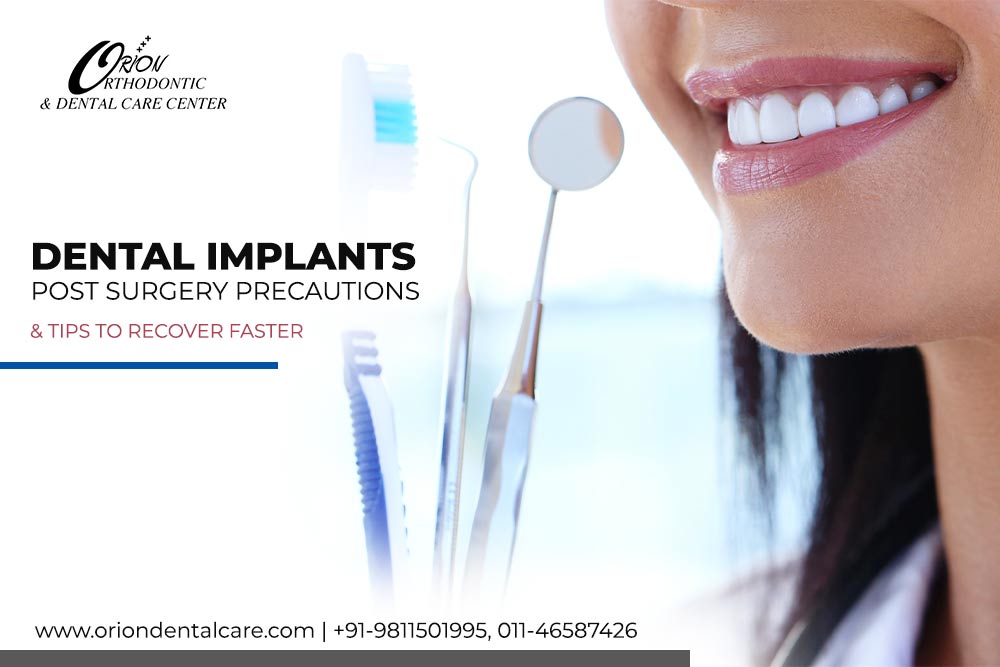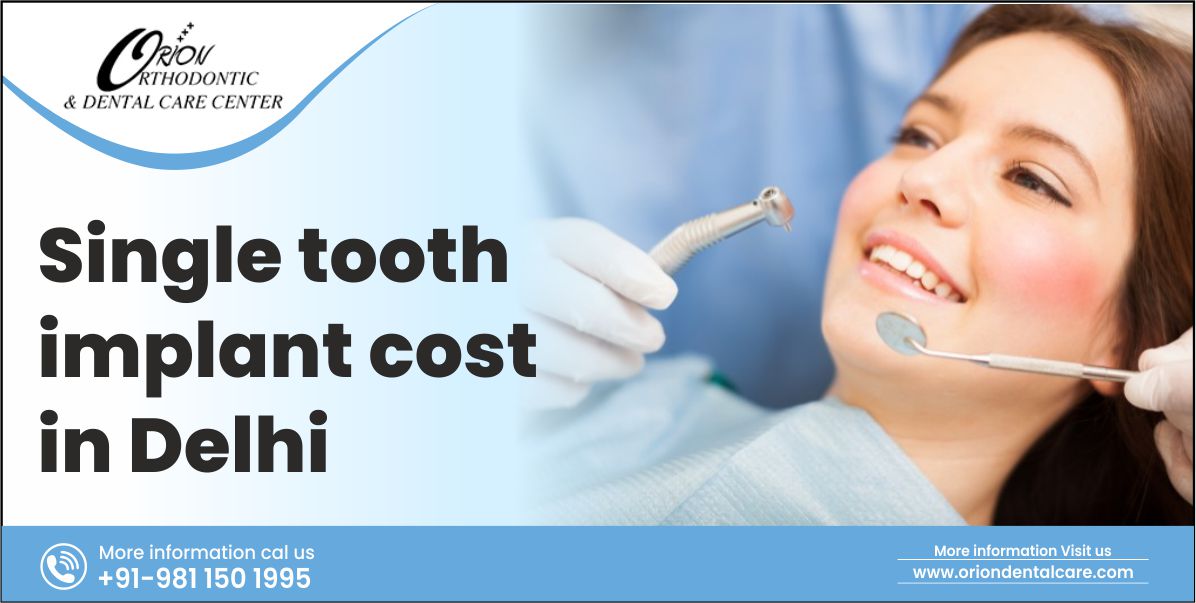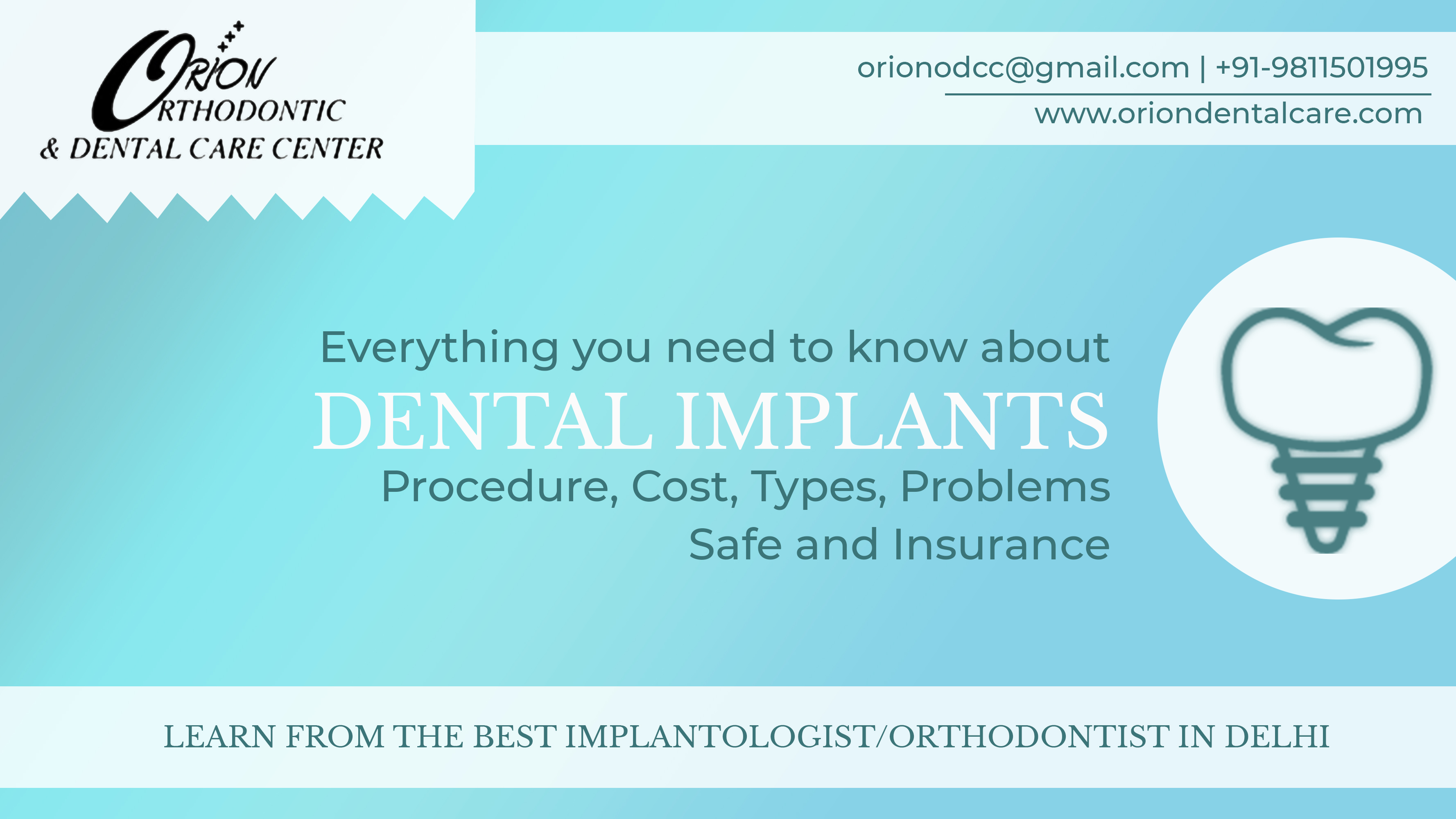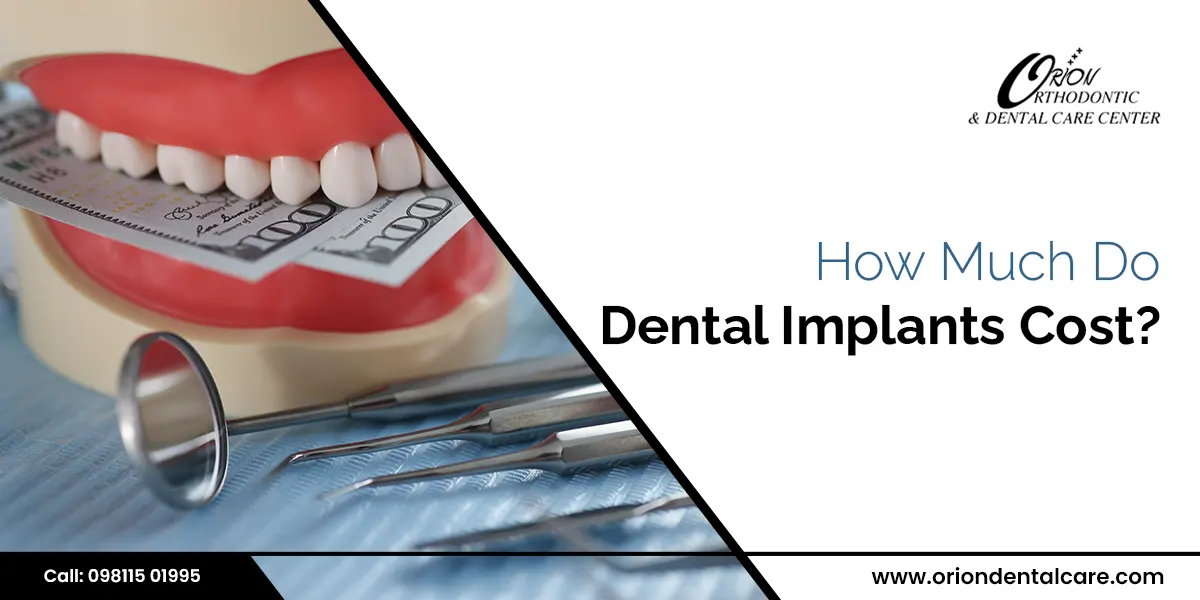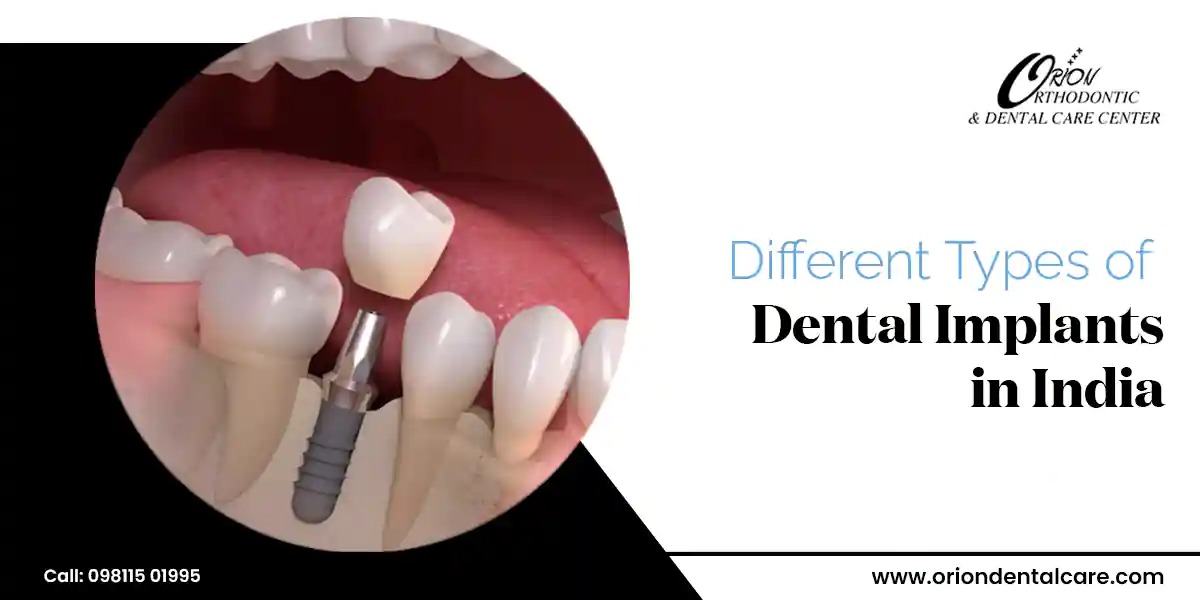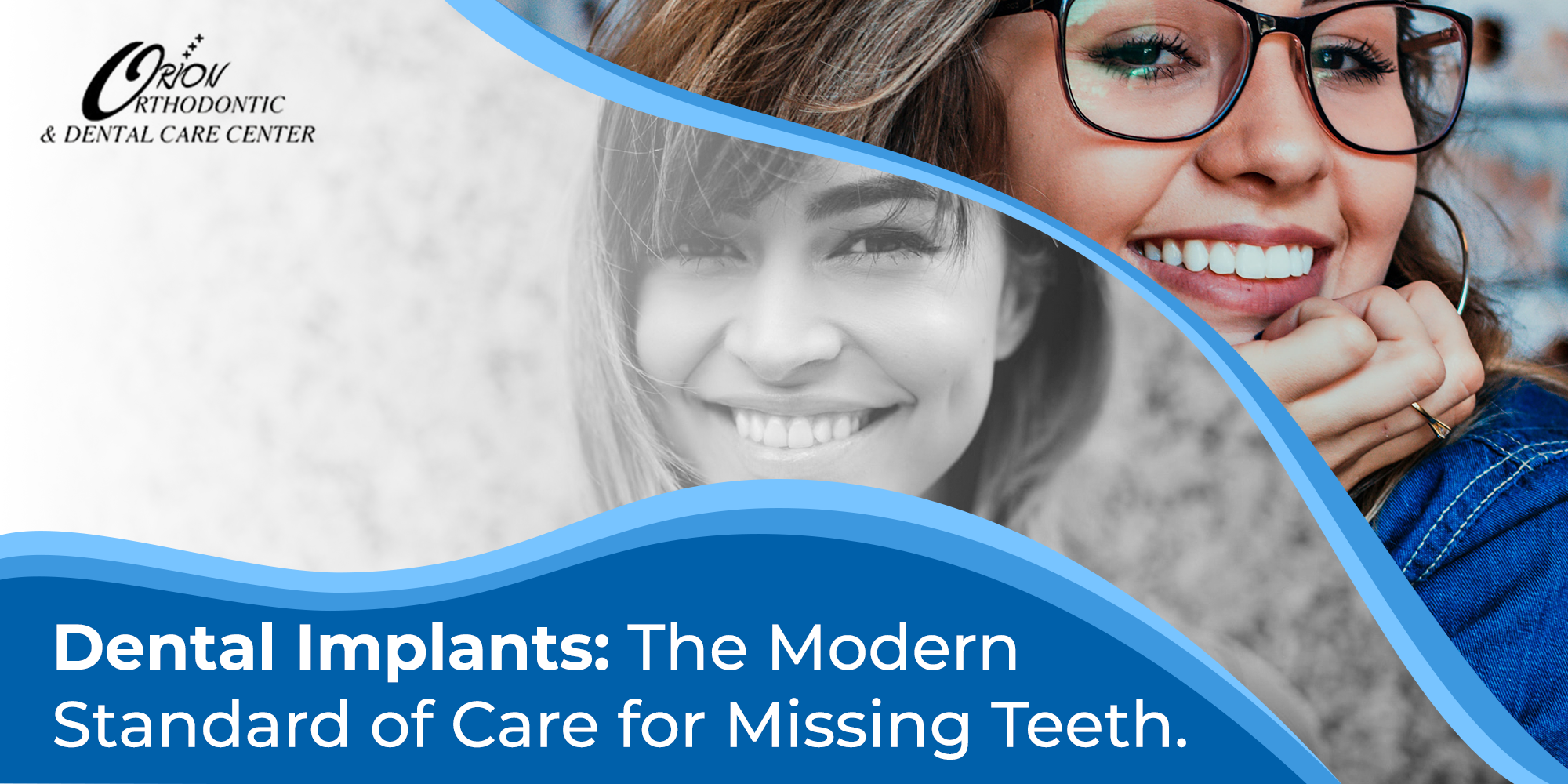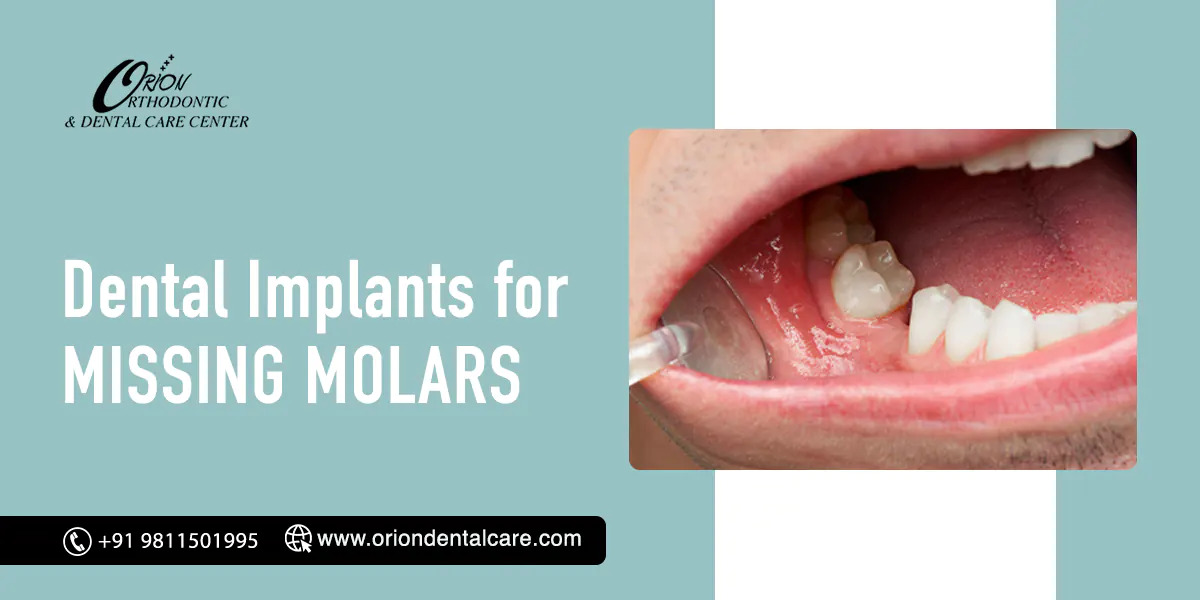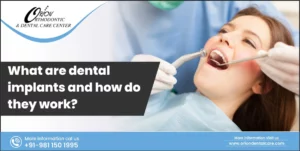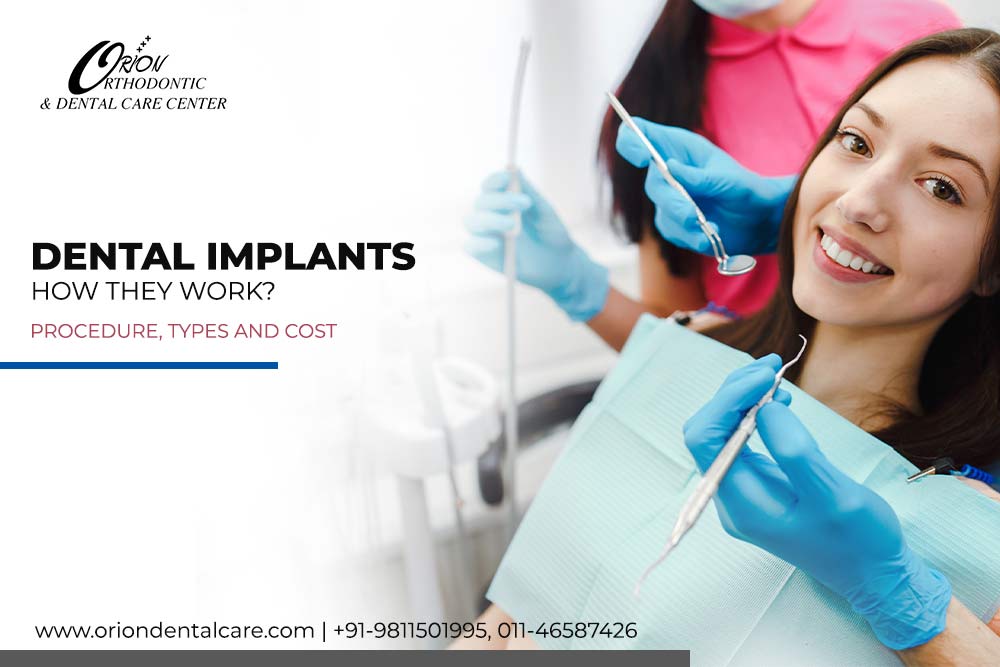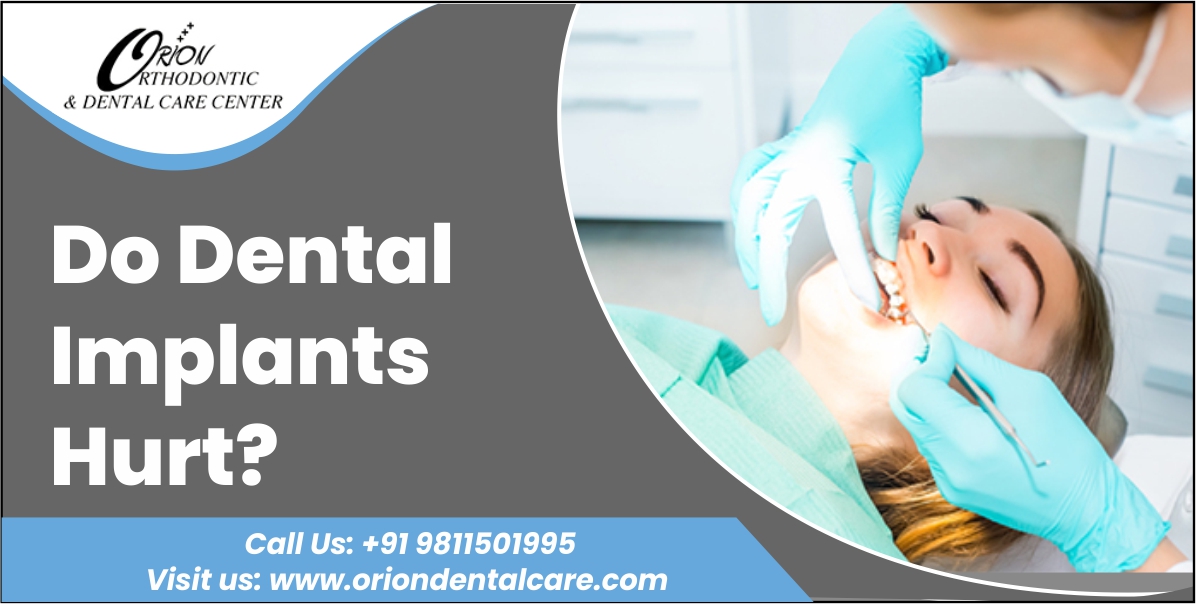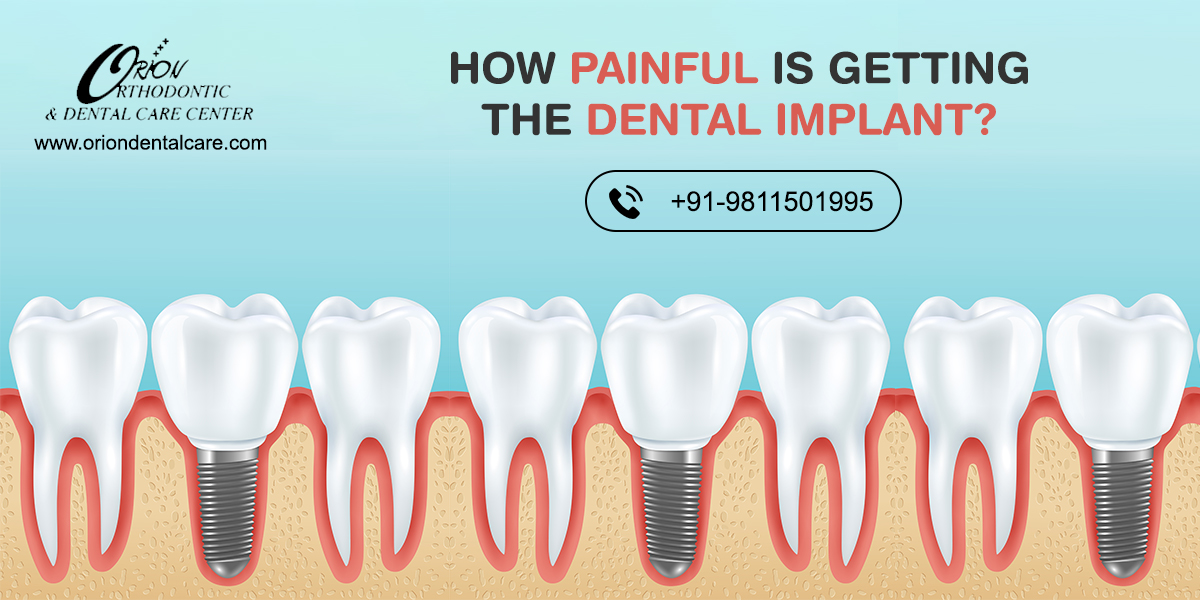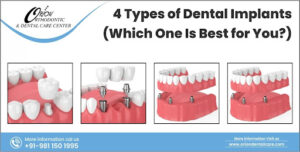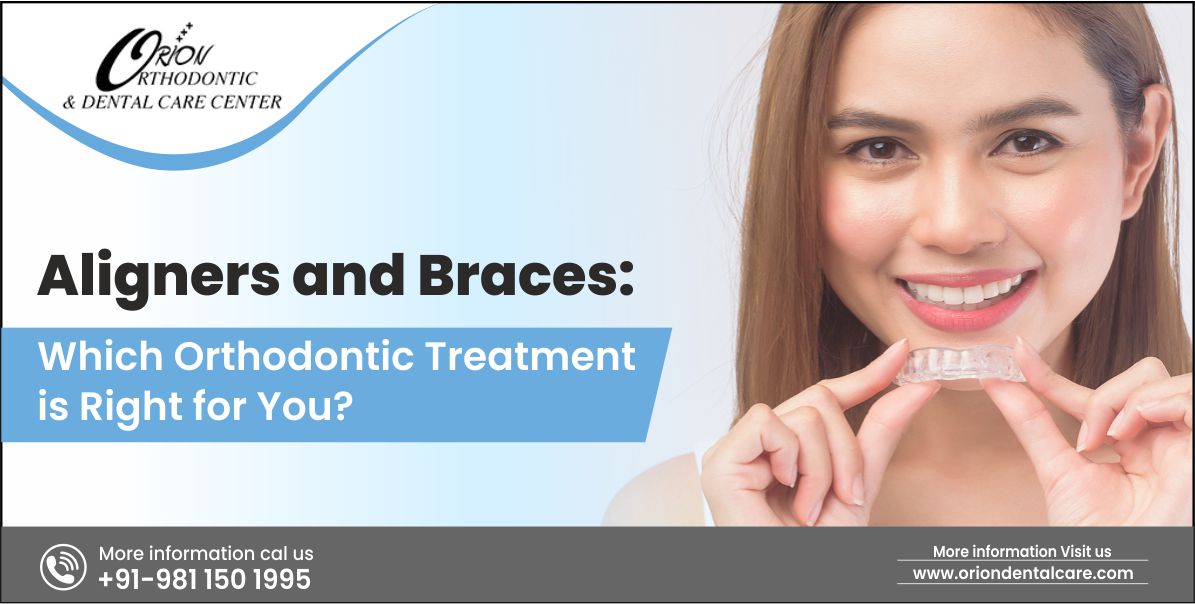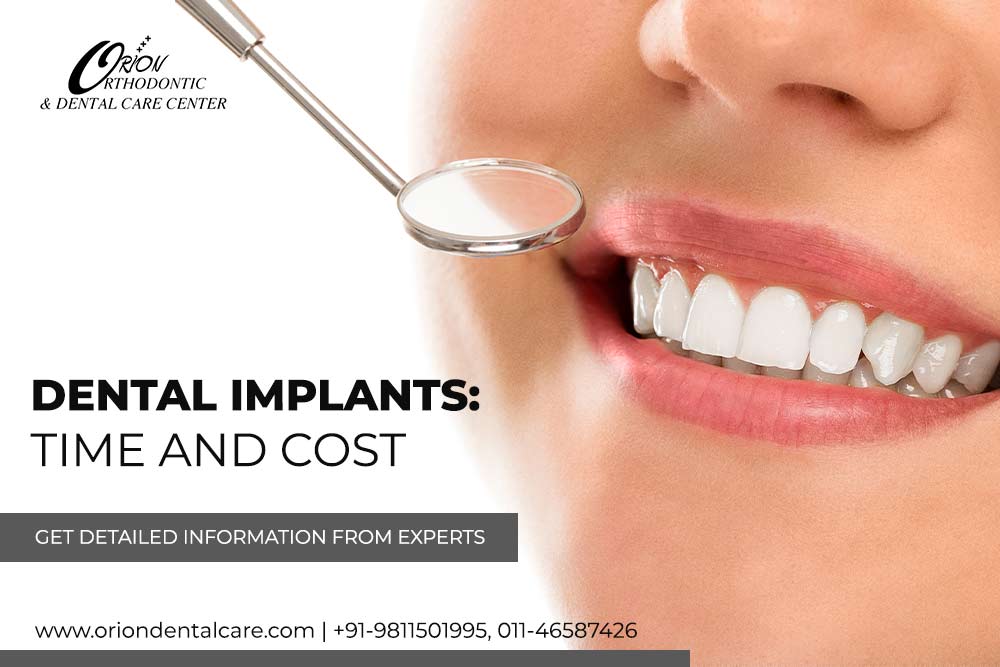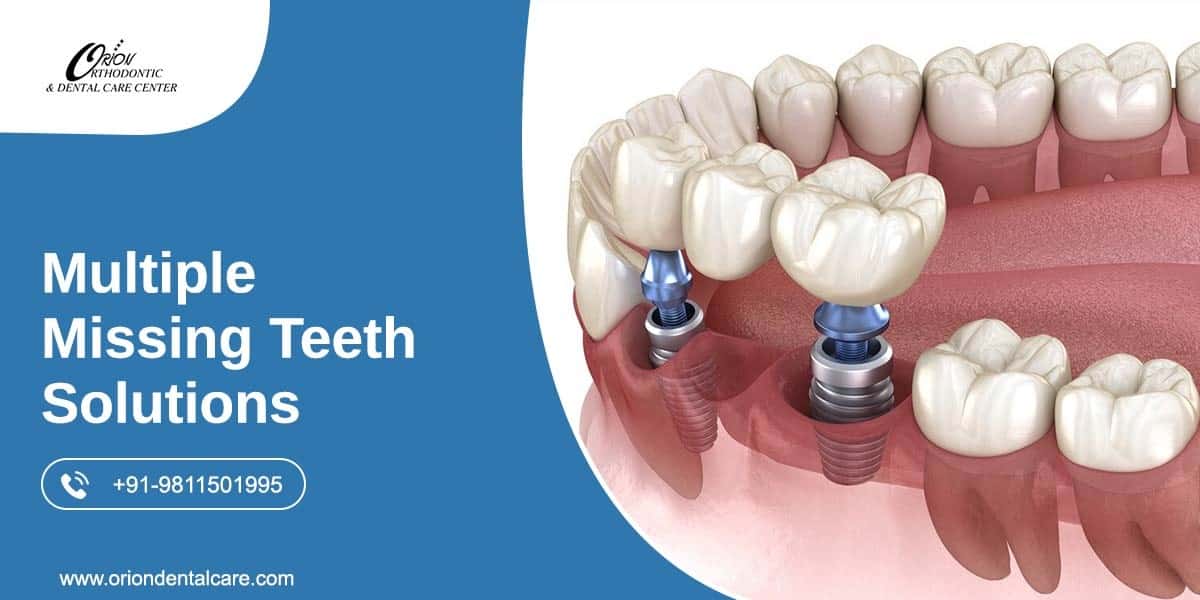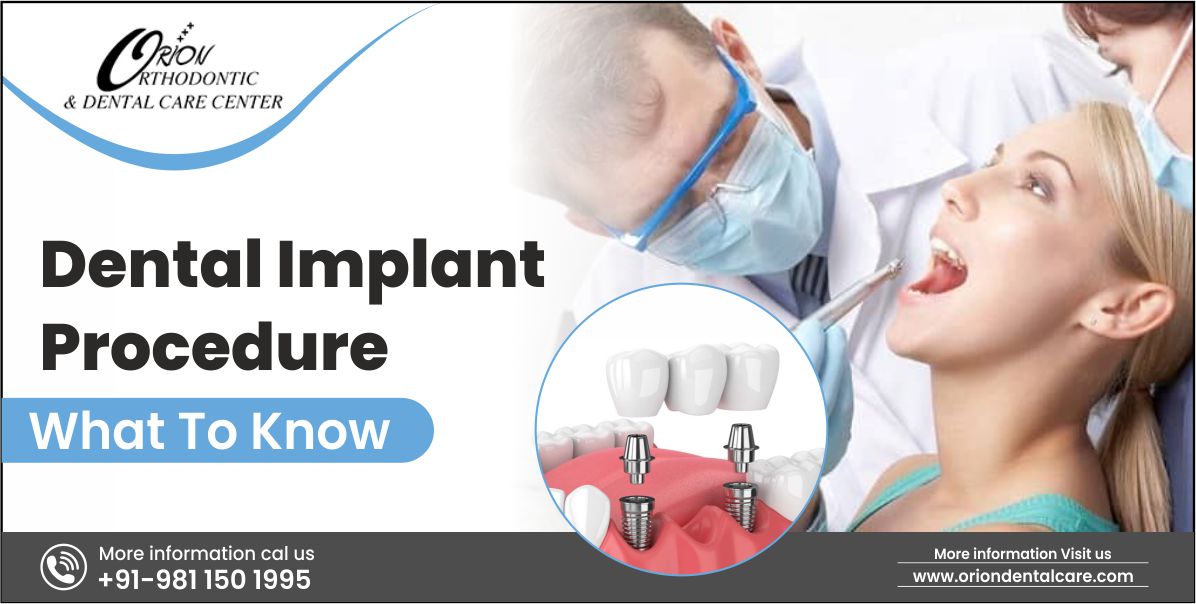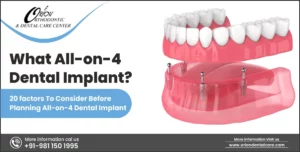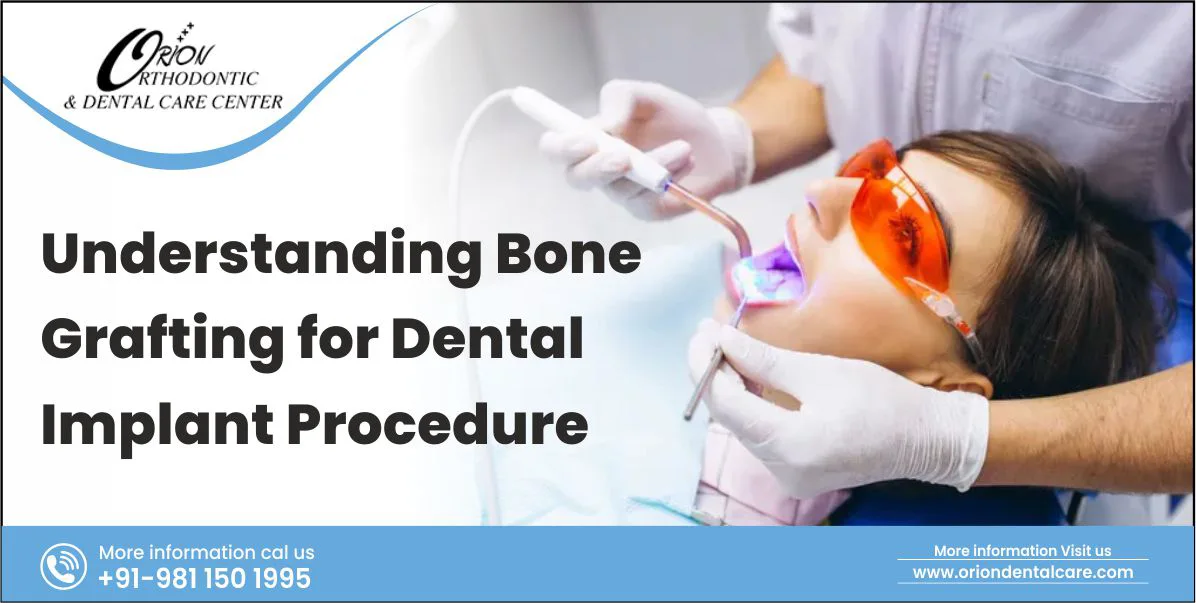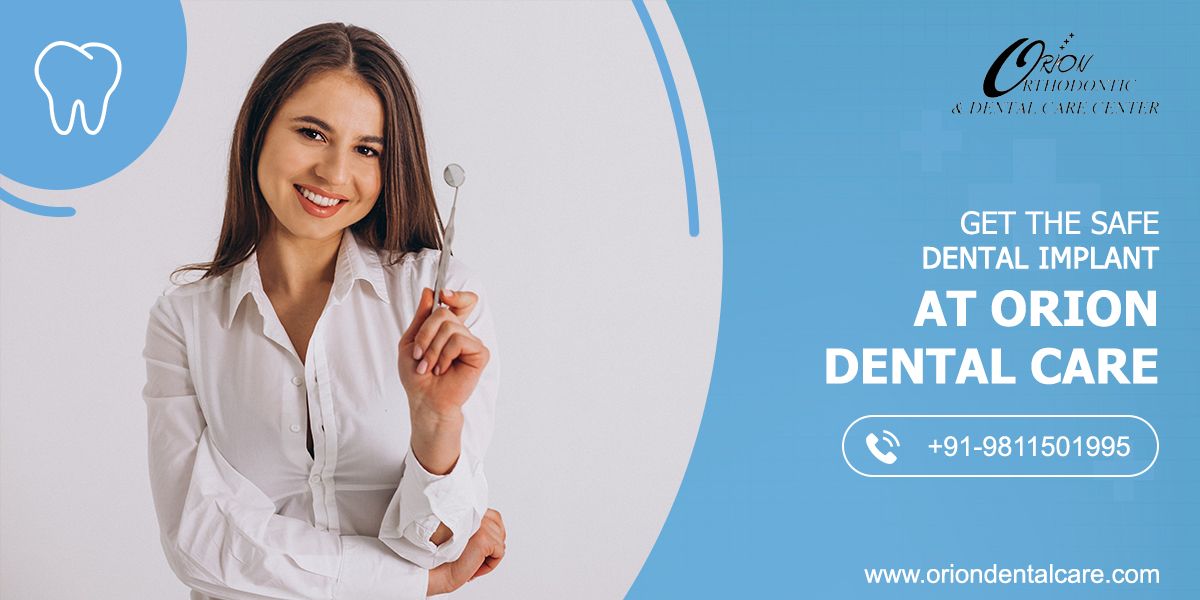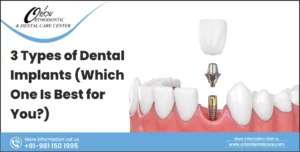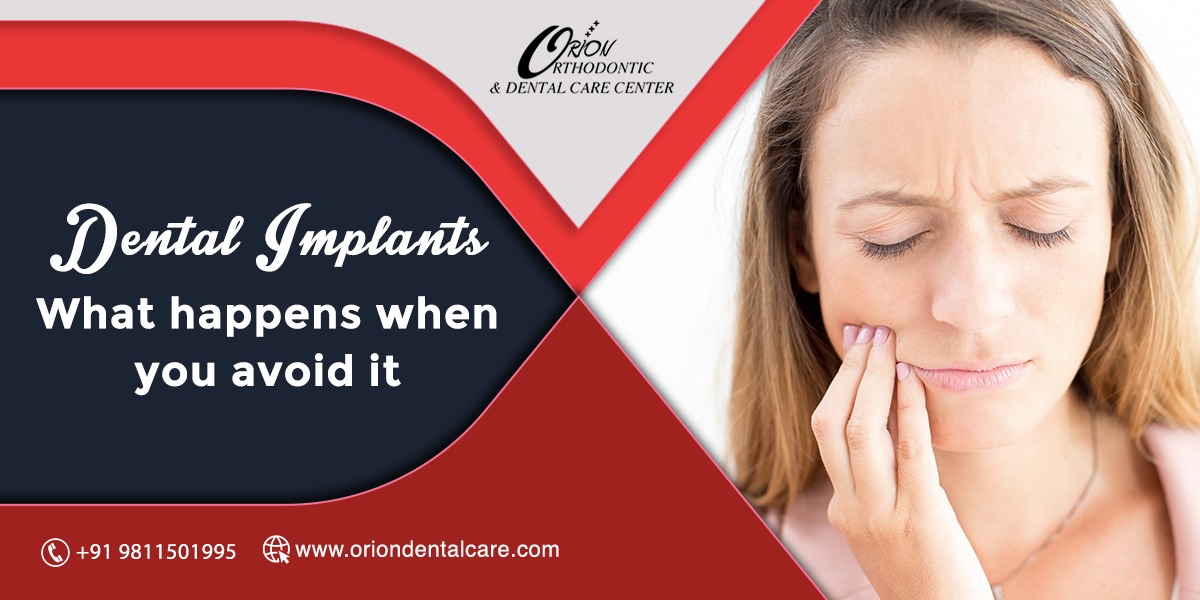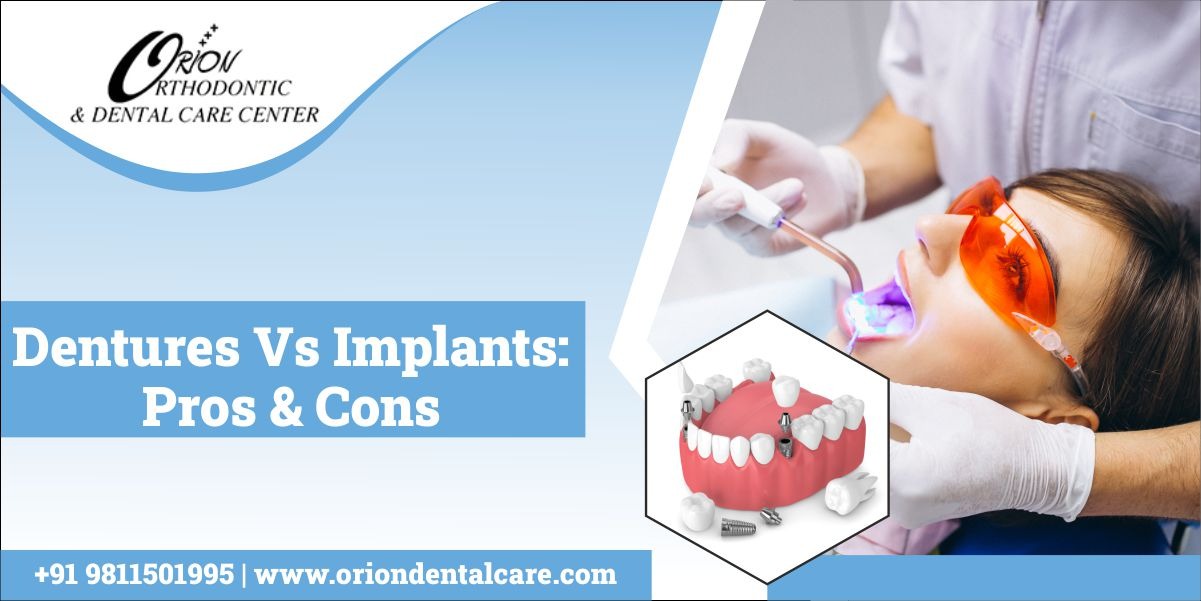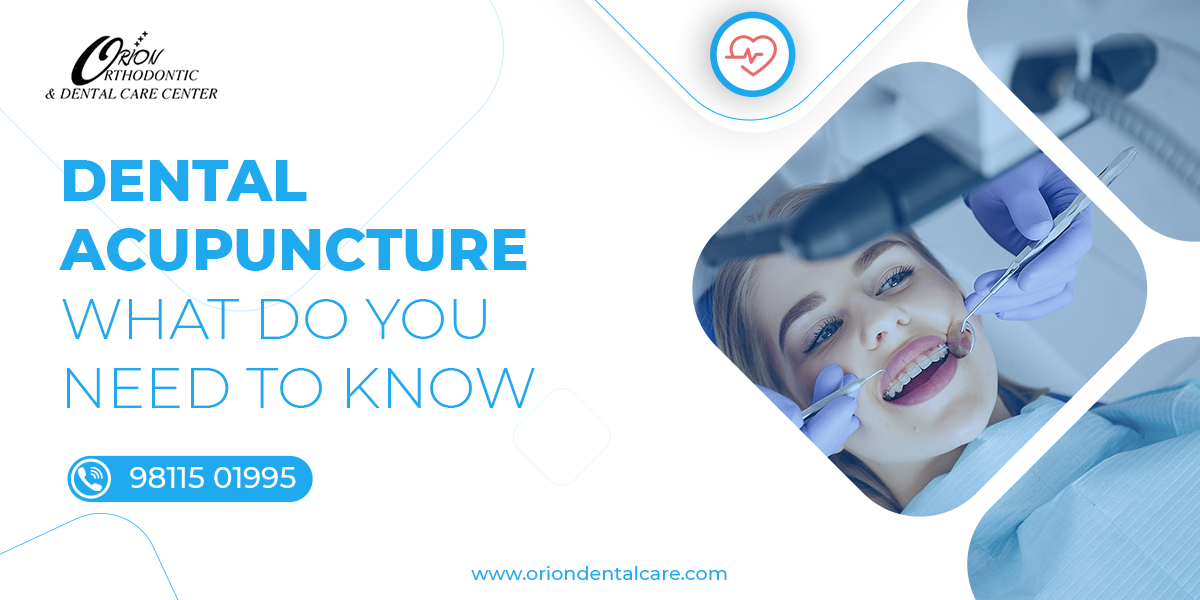Are you looking for a safe dental implant to reclaim your beautiful smile? If yes, it is just the right time for you to contact the best clinic for dental implants in Delhi, that would help you determine which treatment option would be suitable for you, depending on your specific requirements. At Orion Dental Clinic, we help you with pre- and post-surgery precautions so that the healing process is quick and hassle-free.
Table of Contents
Feel free to skip ahead if one topic catches your eye:
- Techniques used in dental implants
- Factors determining the success rate
- Precautions to take after dental Implant surgery
- Dental Implant types and its recovery timeline
- How to recover faster after dental Implant treatment?
- Possible risks and complications
- Signs when you must consult your surgeon
Takeaway
- Techniques Used In Dental Implants
A dental implant can be defined as an artificial tooth root that provides a stable anchorage for a single or multiple prosthetic teeth. It is surgically placed into the jaw and replicates the appearance as well as the function of natural teeth, as it effortlessly interacts with the jaw bone structure and the gum tissues.
A wide range of dental implant techniques are used as the requirement of each patient and case is different.
Dental Implant Techniques
- Bone augmentation: During this procedure, bone graft material that includes proteins and collagen is used for promoting bone growth and fortifying the jawbone before the doctor can initiate the placement of the implant.
- Sinus lift: A Sinus lift (also known as sinus elevation and sinus augmentation), is done to address the lack of bone quantity and quality in the upper back jaw. It is also used to elevate the sinus floor that is considered too low for implant placement. During this procedure, the doctor would reposition the sinus floor and then use the bone grafting material to fortify the sinus bone before proceeding with the dental implant placement.
- Ridge expansion: Ridge expansion, which is also known as ridge modification, addresses the deficiencies and abnormalities of the lower and upper jaw that otherwise cannot support an implant. The doctor makes use of the bone graft material for significantly elevating implant aesthetics and success with a predefined purpose to build up the ridge before the placement of the dental implant can begin.
- All-on-4®: All-on-4 is a process in which an entire set of lower or upper teeth are replaced on only four dental implant posts. This procedure eliminates the need for bone grafting and is featured by custom abutments (posts) facilitating immediate placement of a temporary set of replacement teeth. Patients have to wear temporary replacement teeth for about six months. They may be asked to follow a modified diet to promote osseointegration (the direct functional and structural connection between a living bone and a load-bearing artificial implant’s surface) along with gum tissue healing. Thereafter, the temporary teeth are replaced with a permanent full dental bridge of natural-looking and fully-functional teeth.
- Mini Dental Implants (MDIs): They can be defined as narrow endosteal implants that are generally used for anchoring the lower jaw”s implant-supported denture. A minimally-invasive implant treatment, MDIs are an excellent choice for patients who are not the ideal candidates for bone grafting treatment or those who are experiencing bone deterioration.
If you need any help with dental implants in Delhi, you can call the best clinic for dental implants in Delhi by reaching out to us.
- Factors determining the success rate
Role of age in prognosis
Wound healing, osseous healing capacity, and jawbone density may be slower or compromised in older people, further putting their response to osseointegration at some risk. Moreover, ageing is generally linked to different chronic ailments like arthritis and osteoporosis, and medical treatments like radiation therapy and corticosteroids can also alter bone physiology. They may stimulate modifications in the process of osseointegration. However, this issue can be sorted by osseointegrated implants so that successful osseointegration is always maintained.
Role of occlusion in prognosis
The bone surrounded by an oral implant is influenced by occlusal forces. It is worth noting that mechanical stress can both positively and negatively impact bone tissue and a dental implant’s osseointegration. At times, the occlusal forces may exceed the biological or mechanical load-bearing capacity of the implant, which may lead to dental implant failure. Under such a circumstance, the load can be defined as an “overload.”
Role of bone density in prognosis
Bone density is one of the most crucial factors to determine the primary stability of dental implants. Many studies have demonstrated the association between bone density and the torque value for the insertion of a dental implant.
Role of systemic diseases in prognosis
Oral tissues impacted by systemic diseases such as rheumatoid arthritis and osteomalacia, can possibly interfere with the healing of the dental implant. Also, these health conditions are generally treated with medications or therapies that have a considerable impact on the implants and the tissues supporting them. However, results can be good if approved protocols are followed in irradiated people.
Role of smoking in prognosis
Smoking is a significant risk factor for a series of health outcomes, including implant and tooth loss. This is primarily because it considerably alters the human host response and the microbial load on implants and thus jeopardizes the life of dental implants.
If you need more information or guidance about the best dental implant in Delhi and the cost of dental implants in Delhi, you can reach out to us.
- Precautions to take after dental Implant surgery
- It is essential to maintain proper oral hygiene during the healing period. This is primarily because the soft tissues around the dental implant require a clean and hygienic environment to recover. It is important to note that infections are the biggest cause of the failure of dental implants.
- It is good to brush your teeth on the evening of your surgery but not make any contact with the implant. For a week, rinse the mouth with a glass of warm water along with a teaspoon of salt for removing food debris after every meal. You should use a chlorhexidine rinse.
- For 2-4 days, you should avoid any electric toothbrushes or water flossers. It is best to use a dental implant cleaning brush or a traditional toothbrush.
- Brush, rinse, and floss every day and emphasize regular dental checkups.
- It is best to avoid hot drinks and food for at least a week after the surgery.
- Stick to soft foods and avoid hard or crunchy food.
- You should avoid smoking for at least 2-3 months, and alcohol for at least 72 hours after the dental implant surgery.
- Dental Implant types and its recovery timeline
There are two primary types of dental implants:
Endosteal implants: This dental implant is the most common type, and is surgically placed into the jawline directly. Bone tends to grow around the implant after a few weeks post an endosteal implant procedure to anchor the implant in place securely. Patients can choose from two types of endosteal implants – blade and cylinder. Blade implants are flat; thin titanium pieces are used when the jawbone’s part that securely holds the teeth is atrophied. On the other hand, cylinder implants are titanium screws that protect a patient’s jawbone from deterioration. Patients can expect their jaw to heal fully within a period of 6 to 9 months.
Subperiosteal implants: These implants are usually recommended to patients who have experienced bone loss or those who lack sufficient natural jawbone for supporting an endosteal implant without having a grafting or bone augmentation procedure. Subperiosteal implants are placed under the gum – either above or on the connective tissue’s outer layer covering the jawbone’s surface. The estimated recovery time is 5-7 months after the subperiosteal implant is put in place.
At Orion Dental Clinic, you will get the best treatment and consultation. The best thing is that you can access the best dental implant in Delhi at just the right cost of dental implants in Delhi.
- How to recover faster after dental Implant treatment?
Your dentist and his or her team would guide you with instructions to follow for quick healing. This may include instructions such as avoiding vigorous mouth rinsing, getting sufficient rest, not touching the implant area, gently applying pressure on the implant by biting down, consuming only liquids and soft foods until the anesthetic wears off, and abstaining from smoking and alcohol.
The dentists and surgeons at Orion Dental have rich experience with handling all kinds of oral health issues, and we help you recover fast after the dental implant surgery.
- Possible risks and complications
Patients may experience pain at the surgery site, bruised gums, or swollen gums after the dental implant. The dentist would prescribe antibiotics or medications to help ease any pain or discomfort. Patients would be asked to eat soft foods for about 7-10 days while healing occurs. The time of recovery depends on bone health, the number of teeth implanted, and the overall health of the patient.
As a part of post-implant surgery care, patients need to maintain good oral hygiene. Brushing, rinsing, and flossing regularly is highly recommended as they minimize the chances of an infection compromising the implant’s integrity.
If you need any help with dental implants or want to find out how we at the Orion Dental Clinic ensure the success of your dental implants, please feel free to call or visit our office. Our team would be happy to discuss your treatment and ensure that you make an informed decision.
- Signs when you must consult your surgeon
You should keep a check on how your dental implant’ response. If you notice any signs of infection, severe pain or discomfort, you should never engage in self-prescribing medications, and you should contact your doctor right away. If you are experiencing swelling on your mouth or face after the implant surgery, it is best to sleep with two pillows tucked behind the head. If you are still finding issues, you must immediately contact your dentist.
Takeaway
To get the best results from an implant procedure, you need to choose a reputed and successful dental clinic that can cater to your specific requirements and expectations.
If you are looking for the best treatment, personalized care and attention, the Orion Dental Clinic would be an excellent choice for you. Our team uses implant surgical planning software and three-dimensional digital imaging so that you get the best implant based on your facial anatomy.

